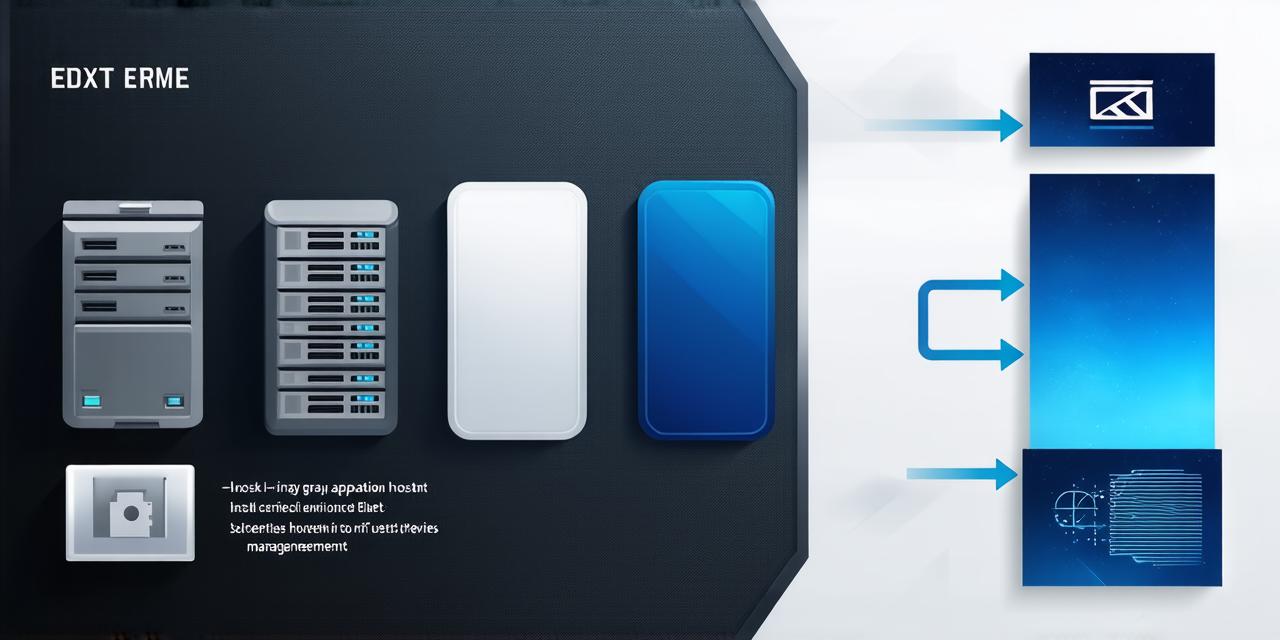When it comes to developing web applications, hosting is often an afterthought. Many developers focus on creating a beautiful user interface and a smooth user experience without considering the infrastructure that powers their app. However, choosing the right hosting provider and plan can have a significant impact on the success of your application. In this article, we will explore what hosting an application means, why it’s important, and how you can choose the best hosting solution for your needs.
What is Hosting?
Hosting refers to the process of storing and serving web files, including HTML, CSS, JavaScript, images, and other media content on a server so that they can be accessed by users over the internet. The server acts as a middleman between the user’s browser and your application.
Why Hosting Matters
Hosting is crucial for the success of your application because it determines how quickly and reliably users can access and interact with your website. If your app takes too long to load or crashes frequently, users are likely to leave your site and find another solution. On the other hand, if your app loads quickly and runs smoothly, users are more likely to stay and return in the future.
Choosing the Right Hosting Plan
When choosing a hosting provider and plan, there are several factors to consider:
- Uptime: Uptime refers to the percentage of time that your website is available to users over the internet. A good hosting provider should guarantee at least 99.9% uptime. If your website goes down frequently, you risk losing customers and revenue.
- Scalability: If your application grows in popularity, you will need a hosting plan that can handle increased traffic and demand. Look for a hosting provider that offers scalable solutions like load balancing, auto-scaling, and content delivery networks (CDNs).
- Security: Security is crucial for protecting your website from cyber attacks and data breaches. Choose a hosting provider that offers firewalls, malware scanning, DDoS protection, and regular security updates.
- Support: Good support is essential if you encounter any issues with your website or hosting plan. Look for a hosting provider that offers 24/7 customer support via phone, email, or live chat, as well as knowledge bases, tutorials, and a community forum.
- Price: Finally, consider the cost of the hosting plan. While it’s important to choose an affordable solution, be wary of providers that offer cheap shared hosting plans with limited features and poor performance.
Examples of Hosting Solutions
Now that we’ve discussed what to look for in a hosting provider and plan let’s take a closer look at some popular hosting solutions:
- Shared Hosting: Shared hosting is the most affordable type of hosting, where multiple websites share the same server resources. It’s ideal for small businesses or individuals who need a simple website to host their products or services. Popular shared hosting providers include Bluehost, SiteGround, and DreamHost.
- Dedicated Hosting: Dedicated hosting provides users with exclusive access to an entire server, which offers better performance and security than shared hosting. It’s ideal for larger businesses or websites that need a lot of bandwidth and resources. Popular dedicated hosting providers include DigitalOcean, Linode, and Vultr.
- Virtual Private Servers (VPS): VPS hosting is a hybrid solution that provides users with a virtual server on a shared physical server. It offers better performance than shared hosting but is less expensive than dedicated hosting. VPS hosting is ideal for businesses or websites that need more resources than shared hosting but don’t require an entire server.



